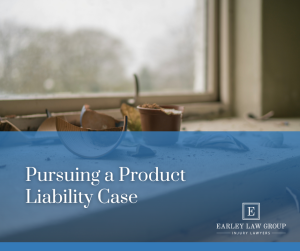
Understanding product liability laws is crucial in today’s busy marketplace. This is because new products are constantly being introduced through innovation and technology. These laws are the guardians of consumer safety, ensuring that the items we bring into our homes and lives do not pose unforeseen dangers.
Manufacturers need to understand these laws to avoid expensive legal disputes and build trust with consumers. This article aims to demystify the complex landscape of product liability, focusing on its implications in Massachusetts, a state known for its stringent consumer protection laws.
The Foundation of Product Liability
At its core, product liability is about accountability. It ensures that manufacturers, distributors, and sellers are held responsible if their products cause harm. This legal framework is built on the premise that products should meet the ordinary expectations of the consumer. When a product has an unexpected defect or danger, it fails these expectations, potentially leading to legal action.
Product defects fall into three main categories:
Design Defects: Flaws inherent in a product’s design, making it inherently unsafe.
Manufacturing Defects: Errors that occur during the manufacturing process, deviating from the product’s intended design.
Marketing Defects: Failure to provide adequate warnings or instructions about the product’s use, leading to misuse or ignorance of potential risks.
Liability theories include strict liability, negligence, and breach of warranty, offering various avenues through which consumers can pursue compensation for injuries or damages caused by defective products.
The Massachusetts Perspective
Massachusetts stands out for its rigorous approach to product liability. The state mandates that manufacturers ensure their products are free from defects and not unreasonably dangerous. Victims of defective products in Massachusetts must prove that the product was defective or too dangerous for its intended use, highlighting the importance of understanding the nuances of state laws in product liability cases.
Massachusetts recognizes design defects, manufacturing defects, and failure to warn claims under its product liability framework. The statute of limitations for personal injury and wrongful death claims related to product liability is three years, emphasizing the need for timely legal action.
Punitive damages in Massachusetts are reserved for cases involving wrongful death resulting from malicious, willful, wanton, or recklessly conductive defendants, or gross negligence. This limitation underscores the state’s intent to punish egregious conduct while providing a means of compensation for victims and their families.
Practical Steps for Consumers and Manufacturers
- Be aware of the three-year statute of limitations in Massachusetts for filing a product liability claim.
- Understand the types of defects and liability claims that might apply to your situation.
- Consult with a product liability attorney to navigate the complexities of your case and prepare for potential defenses from manufacturers.
- Ensure rigorous testing and quality control to prevent design and manufacturing defects.
- Provide clear, comprehensive warnings and instructions with your products to mitigate the risk of marketing defects.
- Stay informed about the specific product liability laws and consumer protection acts in states where your products are sold, especially in states like Massachusetts with strict regulations.
Conclusion
The complex terrain of product liability laws requires both vigilance and knowledge, particularly in a state like Massachusetts, renowned for its strict consumer protection measures. For individuals who have suffered due to defective medical devices or other products, these laws offer a beacon of hope, a way to recover damages for the harm endured.
It’s not just about the immediate physical injuries; it’s also about the longer-term pain and suffering, the unforeseen side effects that can alter lives. Product liability lawsuits serve as a critical mechanism for these victims, allowing them to hold manufacturers accountable for breach of warranty, manufacturing defects, or the failure to warn about the dangers of their products.
For plaintiffs in products liability cases, the journey is often fraught with challenges. They must navigate a legal labyrinth, one that requires proving the product in question was not just defective, but unreasonably dangerous. This distinction is crucial, for it underscores the responsibility of manufacturers to ensure their products do no harm.
Those who have experienced product liability firsthand understand the significance of this battle. It’s not merely about financial compensation; it’s about justice, about ensuring that others do not suffer the same fate.
The role of a products liability lawyer cannot be overstated in these scenarios. Armed with a deep understanding of product liability laws, these legal professionals guide their clients through the complexities of their cases. They understand what it takes to prove that a product was inherently unsafe, whether due to design flaws, manufacturing defects, or inadequate warnings. Their expertise not only empowers plaintiffs but also pressures manufacturers to uphold the highest safety standards.
Manufacturers, on their part, must heed the lessons of product liability lawsuits. These cases highlight the paramount importance of rigorous testing, transparent marketing, and swift action to correct defects. Adherence to these principles is not just a legal obligation but a moral one, fostering trust and safety in the consumer marketplace.
As we move forward, the interplay between product liability laws, the diligence of consumers, and the ethics of manufacturers will continue to shape the landscape of consumer protection. Massachusetts, with its stringent laws, exemplifies this balance, offering a blueprint for how to protect consumers while encouraging innovation and trust in the products that populate our lives.
For anyone affected by or involved in the manufacturing of consumer goods, understanding and respecting these laws is not just beneficial—it’s essential for ensuring that the marketplace remains a safe, trustworthy space for all.
Don’t be scared off by how complicated the law seems or by how big and powerful the companies that made the faulty products are. Reach out to us today, and let the Earley Law Group Injury Lawyers stand up for you in this important battle. We’ll work together to make sure your pain is recognized and to help make buying things safer for everyone. Give us a call now to chat about your situation and start the process of making those at fault pay for what happened.

